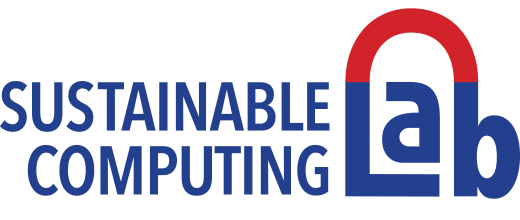
How are platforms governed? How do platforms govern? How is online content regulated – by international law, EU law, national law and by the private rules of online platforms? And how do these normative orders interact in the private spaces in which new practices of public communication emerge. These questions are at the center of the Sustainable Computing Lab’s Research Group Platform and Content Governance (PCGo).
The Research Group focuses on gaining a better understanding of the evolution and application, legitimacy and contestation of norms regulating user-generated content on platforms and by platforms. We engage in cutting-edge multidisciplinary research into public, private and hybrid online communication spaces and their impact on democracy and the rule of law, fundamental rights of online users and societal cohesion. Together with other projects of the Research Group leaders, including at partner institutions in Hamburg and Brussels, Berlin and Helsinki, Vienna and Jena, the Research Group dives deeply into the emerging, stabilizing and contested normative orders developed by private platforms that impact how people communicate online.
The special added value provided by the Research Group lies in performing cutting-edge research at the intersection of research and policy with a strong focus on policy development and science impact. With a strong foundation in scientific research, science transfer and public policy, we are ideally positioned to shape the discourses on platforms and their role in societies and to input the development of policies and practices of online platform and content regulation.
The Research Group’s Platform and Content Governance Discussion Group meets online once a month to provide updates on current developments, exchange ideas, share project proposals and current research.
The core project in this Research Group at the Lab is T-REx – Taxonomy of Rights and Expressions for Freedom of Expression Governance. Starting in 2020, Matthias C. Kettemann and Ben Wagner as principal investigators have developed a normative taxonomy of expressions (from manifestly illegal (under Austrian and German law) to just ‚sensitive’). This taxonomy will then be used to comments and, first, develop empirical insights into the distribution of illegal content, the time frame in which content moderation decisions (can) take place, and, secondly, allows us to identify deficits and problems in regard to content moderation decisions and, thirdly, help train better filtering/moderating systems employed by a major Austrian quality newspaper and Germany’s biggest Q&A platform.
- Kettemann, The Normative Order of the Internet. A Theory of Online Rule and Regulation (Oxford: Oxford University Press, June 2020)
- Benedek/Kettemann, Freedom of Expression on the Internet (Strassbourg: Council of Europe, 2014, 2nd ed. 2020, translations into French, Turkish, Ukranian)
- Kettemann (ed.), Navigating Normative Orders. Interdisciplinary Perspectives (Frankfurt/New York: Campus, May 2020)
- Kettemann/Schulz, Setting Rules for 2.7 Billion. A (First) Look into
Facebook’s Norm-Making System: Results of a Pilot Study (Hamburg: Working Papers of the Hans-Bredow-Institut, Works in Progress # 1, 2020) - Kettemann, Internet Governance, in Jahnel et al. (Hrsg.), Internetrecht, 4. Auflage (Wien: Springer, 2020)
- Kettemann/Wittner, Made in Europe: Concept and Critique of the Role of Europe as a Global Internet Standard-Setter in Light of the GDPR (and the Network Enforcement Act), ZaöRV (2020)
- Wagner/Kettemann/Vieth (eds.), Research Handbook on Human Rights and Digital Technology. Global Politics, Law and International Relations (Cheltenham: Edward Elgar, 2019)
- Kettemann, “This is Not a Drill”: International Law and Protection of Cybersecurity, in Wagner/Kettemann/Vieth (eds.), Research Handbook of Human Rights and Digital Technology (Cheltenham: Edward Elgar, 2019), 113-128
- Kettemann/Benedek, Freedom of expression online, in Mart Susi (Hrsg.), Human Rights, Digital Society and the Law. A Research Companion (London: Routledge, 2019), 58-74
- Mosene/Kettemann (eds.), Many Worlds. Many Nets. Many Visions. Critical Voices, Visions and Vectors for Internet Governance (Berlin: HIIG, 2019) (https://www.hiig.de/publication/many-worlds-many-nets-many-visions)
- Kettemann/Dreyer (Hrsg.), Busted! The Truth About the 50 Most Common Internet Myths (Berlin: BMWi/Hamburg: Verlag Hans-Bredow-Institut, Nov. 2019) (online OA at https://www.internetmyths.eu)
- Kleinwächter/Kettemann/Senges (Hrsg.), Towards a Global Framework for Cyber Peace and Digital Cooperation. An Agenda for the 2020s (Berlin: BMWi, Nov. 2019) (online OA at https://leibniz-hbi.de/de/publikationen/towards-a-global-framework-for-cyber-peace-and-digital-cooperation)
- Wagner/Kettemann/Vieth (Hrsg.), Research Handbook on Human Rights and Digital Technology. Global Politics, Law and International Relations (Cheltenham: Edward Elgar, 2019)
- Kettemann, Die Weltordnung des Digitalen, Vereinte Nationen. Zeitschrift für die Vereinten Nationen und ihre Sonderorganisationen/German Review on the United Nations 5/2019, 195-200
- Kettemann, International Rules for Social Media. Safeguarding human rights, combating disinformation, Global Governance Spotlight 2/2019 (Development and Peace Foundation (sef:), Bonn, 2019), https://www.sef-bonn.org/en/publications/global-governance-spotlight/22019.html
- Kettemann/Tiedeke, Back up: Can Users Sue Platforms to Reinstate Deleted Content? A Comparative Study of US and German Jurisprudence on “Must Carry”, GigaNet Symposion Research Paper (2019)
- Kettemann, Follow-up to the Comparative Study on Blocking Filtering and Take-down of Illegal Internet Content (Country Report for Germany 2016-2019) (Strassburg: Europarat, 2019), https://rm.coe.int/dgi-2019-update-chapter-germany-study-on-blocking-and-filtering/168097ac51
- Kettemann, Good news, bad news, fake news, real news. The importance of trust in the age of information, disinformation and misinformation,in Missions Publiques, Briefing materials for International Citizens’ Debates – „We, the Internet“, Paris/Berlin (October 2019), https://intgovwiki.org/w/index.php/Information_and_Disinformation
- Access Now, 26 recommendations on content governance: a guide for lawmakers, regulators, and company policy makers (Report March 2020)
- Access Now, Civil Liberties Union for Europe, EDRi, Informing the Disinfromation Debate (Joint Report, 2018)
- Eliska Pirkova, No summer break for free expression in Europe: Facebook cases that matter for human rights (2019)
- Eliska Pirkova and Eva Simon, Automation and illegal content: can we rely on machines making decisions for us? (2020)
- Eliska Pirkova and Eva Simon, Who should decide what we see online? (2020)
- Eliska Pirkova and Eva Simon, Misguided ‘solution’ to terrorist content will have bad consequences for our rights (Euractiv, 2020)
Meet the members

Matthias C. Kettemann
Leibniz Institute for Media Research
(Hamburg/Berlin/Vienna)

Eliška Pírková
University of Helsinki and Access Now Europe
(Brussels/Vienna)

Ben Wagner
Lab co-Director, WU Vienna

Anna Sophia Tiedeke
Leibniz Institute for Media Research | Hans-Bredow-Institut (HBI), Hamburg; Humboldt Institute for Internet and Society, Berlin

Felicitas Rachinger
WU Vienna

Georg Reischauer
WU Vienna

Krisztina Rozgonyi
University of Vienna

Marie-Theres Sekwenz
WU Vienna
